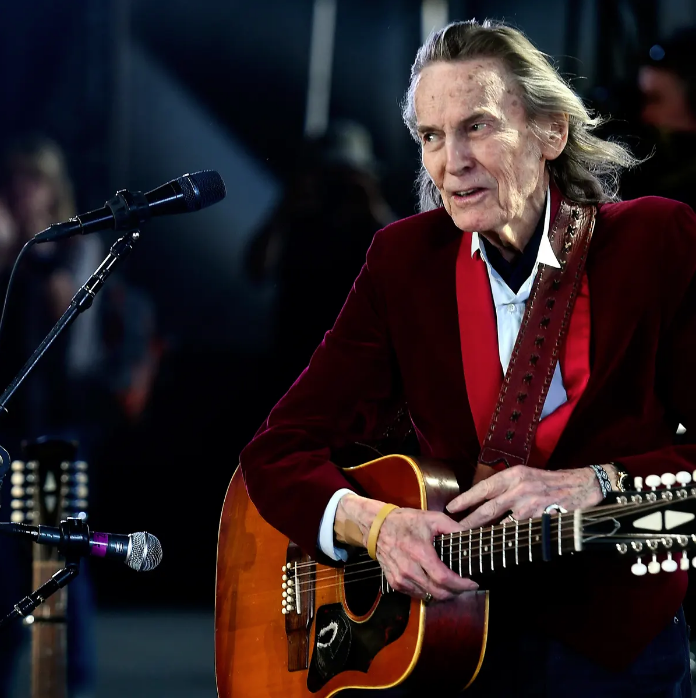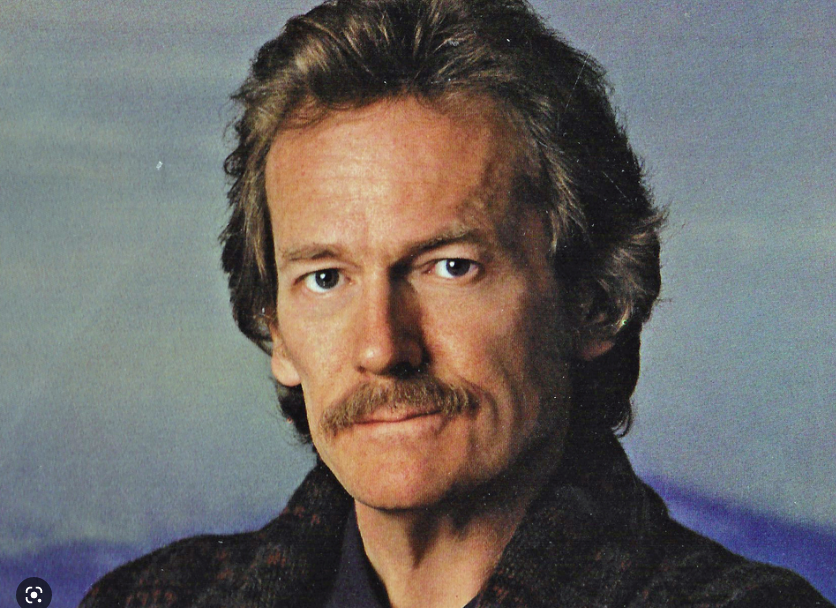Gordon Meredith Lightfoot Jr. CC OOnt (November 17, 1938 – May 1, 2023) was a Canadian singer-songwriter and guitarist who achieved international success in folk, folk-rock, and country music. He is credited with helping to define the folk-pop sound of the 1960s and 1970s.[1] He has been referred to as Canada’s greatest songwriter[2] and his songs have been recorded by some of the world’s most renowned musical artists.[3] Lightfoot’s biographer Nicholas Jennings said, “His name is synonymous with timeless songs about trains and shipwrecks, rivers and highways, lovers and loneliness.”[4]
Lightfoot’s songs, including “For Lovin’ Me”, “Early Morning Rain“, “Steel Rail Blues”, “Ribbon of Darkness“—a number one hit on the U.S. country chart[5] with Marty Robbins‘s cover in 1965—and “Black Day in July”, about the 1967 Detroit riot, brought him wide recognition in the 1960s. Canadian chart success with his own recordings began in 1962 with the No. 3 hit “(Remember Me) I’m the One”, followed by recognition and charting abroad in the 1970s. He topped the US Hot 100 or Adult Contemporary (AC) chart with the hits “If You Could Read My Mind” (1970), “Sundown” (1974); “Carefree Highway” (1974), “Rainy Day People” (1975), and “The Wreck of the Edmund Fitzgerald” (1976), and had many other hits that appeared in the top 40.[6]
Several of Lightfoot’s albums achieved gold and multi-platinum status internationally. His songs have been recorded by many notable artists.[7] The Guess Who recorded a song called “Lightfoot” on their 1968 album Wheatfield Soul; the lyrics contain many Lightfoot song titles.
Robbie Robertson of the Band described Lightfoot as “a national treasure”.[8] Bob Dylan, also a Lightfoot fan, called him one of his favourite songwriters and said, “I can’t think of any Gordon Lightfoot song I don’t like. Every time I hear a song of his, it’s like I wish it would last forever…. Lightfoot became a mentor for a long time. I think he probably still is to this day”.[9][10] Lightfoot was a featured musical performer at the opening ceremonies of the 1988 Winter Olympic Games in Calgary, Alberta and has received numerous honours and awards.
Early life, family and education
Lightfoot was born in Orillia, Ontario, on November 17, 1938,[11][12] to Jessie Vick Trill Lightfoot and Gordon Lightfoot Sr.,[11] who owned a local dry cleaning business.[13] He was of Scottish descent.[14] He had an older sister, Beverley (1935–2017).[citation needed] His mother recognized Lightfoot’s musical talent early on and schooled him to become a successful child performer. He first performed publicly in grade four, singing the Irish-American lullaby “Too Ra Loo Ra Loo Ral“, which was broadcast over his school’s public address system[13] during a parents’ day event.[15]
As a youth, he sang in the choir of Orillia’s St. Paul’s United Church under the direction of choirmaster Ray Williams. According to Lightfoot, Williams taught him how to sing with emotion and how to have confidence in his voice.[16] Lightfoot was a boy soprano; he appeared periodically on local Orillia radio, performed in local operettas and oratorios, and gained exposure through various Kiwanis music festivals. At the age of twelve, after winning a competition for boys whose voices had not yet changed, he made his first appearance at Massey Hall in Toronto, a venue he would ultimately play over 170 more times throughout his career.[17]
As a teenager, Lightfoot learned piano and taught himself to play drums and percussion. He held concerts in Muskoka, a resort area north of Orillia, singing “for a couple of beers”.[18]
Lightfoot performed extensively throughout high school, Orillia District Collegiate & Vocational Institute (ODCVI), and taught himself to play folk guitar. A formative influence on his music at this time was 19th-century master American songwriter Stephen Foster.[19] He was also an accomplished high school track-and-field competitor and set school records for shot-put and pole vault, as well as playing the starting nose tackle on his school’s Georgian Bay championship-winning football team. His athletic and scholarly aptitude earned him scholarships at McGill University‘s Schulich School of Music and the University of Toronto, Faculty of Music.[citation needed]
Lightfoot moved to Los Angeles in 1958 to study jazz composition and orchestration for two years at Westlake College of Music.[20]
Career beginnings


